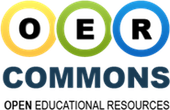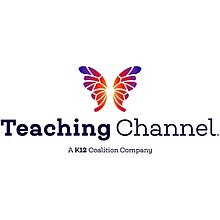Educational essentialism is an educational philosophy whose adherents believe that children should learn the traditional basic subjects thoroughly. In this philosophical school of thought, the aim is to instill students with the "essentials" of academic knowledge, enacting a back-to-basics approach. Essentialism ensures that the accumulated wisdom of our civilization as taught in the traditional academic disciplines is passed on from teacher to student. Such disciplines might include Reading, Writing, Literature, Foreign Languages, History, Mathematics, Classical Languages, Science, Art, and Music. Moreover, this traditional approach is meant to train the mind, promote reasoning, and ensure a common culture.
Science education is the teaching and learning of science to school children, college students, or adults within the general public. The field of science education includes work in science content, science process, some social science, and some teaching pedagogy. The standards for science education provide expectations for the development of understanding for students through the entire course of their K-12 education and beyond. The traditional subjects included in the standards are physical, life, earth, space, and human sciences.
The Reggio Emilia approach is an educational philosophy and pedagogy focused on preschool and primary education. This approach is a student-centered and constructivist self-guided curriculum that uses self-directed, experiential learning in relationship-driven environments. The programme is based on the principles of respect, responsibility and community through exploration, discovery and play.

Experiential education is a philosophy of education that describes the process that occurs between a teacher and student that infuses direct experience with the learning environment and content. The term is not interchangeable with experiential learning; however experiential learning is a sub-field and operates under the methodologies of experiential education. The Association for Experiential Education regards experiential education as "a philosophy that informs many methodologies in which educators purposefully engage with learners in direct experience and focused reflection in order to increase knowledge, develop skills, clarify values, and develop people's capacity to contribute to their communities". Experiential education is the term for the philosophy and educational progressivism is the movement which it informed. The Journal of Experiential Education publishes peer-reviewed empirical and theoretical academic research within the field.

In education, a curriculum is broadly defined as the totality of student experiences that occur in the educational process. The term often refers specifically to a planned sequence of instruction, or to a view of the student's experiences in terms of the educator's or school's instructional goals. A curriculum may incorporate the planned interaction of pupils with instructional content, materials, resources, and processes for evaluating the attainment of educational objectives. Curricula are split into several categories: the explicit, the implicit, the excluded, and the extracurricular.
Founded in 1920, The National Council of Teachers of Mathematics (NCTM) is a professional organization for schoolteachers of mathematics in the United States. One of its goals is to improve the standards of mathematics in education. NCTM holds annual national and regional conferences for teachers and publishes five journals.

Educational music, is a genre of music in which songs, lyrics, or other musical elements are used as a method of teaching and/or learning. It has been shown in research to promote learning. Additionally, music study in general has been shown to improve academic performance of students.

The New York State Education Department (NYSED) is the department of the New York state government responsible for the supervision for all public schools in New York and all standardized testing, as well as the production and administration of state tests and Regents Examinations. In addition, the State Education Department oversees higher education, cultural institutions such as museums and libraries, vocational rehabilitation, and the licensing of numerous professions. It is headed by the Board of Regents of the University of the State of New York (USNY) and administered by the Commissioner of Education.
Globaloria is an online learning platform oriented to K-12 curricula to teach students to design, prototype, and code educational web/mobile games and simulations with industry-standard technology as a means of learning content and creative innovation skills. Globaloria was developed in 2006 by Idit Harel as a project of the World Wide Workshop Foundation with the stated mission of providing all primary and secondary school students in the U.S. with STEM and computing education opportunities. Globaloria is noteworthy among MOOCs as it is based in constructionist learning theory and Harel's research in the MIT Media Lab.
Arts integration differs from traditional education by its inclusion of both the arts discipline and a traditional subject as part of learning The goal of arts integration is to increase knowledge of a general subject area while concurrently fostering a greater understanding and appreciation of the fine and performing arts. The John F. Kennedy Center for the Performing Arts defines arts integration as "an approach to teaching in which students construct and demonstrate understanding through an art form. Students engage in a creative process which connects an art form and another subject and meets evolving objectives in both."
A professional learning community (PLC) is a method to foster collaborative learning among colleagues within a particular work environment or field. It is often used in schools as a way to organize teachers into working groups of practice-based professional learning.
A strategic technology plan is a specific type of strategy plan that lets an organization know where they are now and where they want to be some time in the future with regard to the technology and infrastructure in their organization. It often consists of the following sections.
The Common Core State Standards Initiative, also known as simply Common Core, was a multi-state educational initiative begun in 2010 with goal of increasing consistency across state standards, or what K–12 students throughout the United States should know in English language arts and mathematics at the conclusion of each school grade. The initiative was sponsored by the National Governors Association and Council of Chief State School Officers.

OER Commons is a freely accessible online library that allows teachers and others to search and discover open educational resources (OER) and other freely available instructional materials.

Amplify is a curriculum and assessment company launched in July 2012. Amplify Curriculum was built on the foundation of Wireless Generation, the educational company News Corp bought in 2010. Amplify products and services provide assessment and analytics for data-driven instruction and next-generation digital curriculum based on the Common Core State Standards.

In the United States, elementary schools are the main point of delivery of primary education, for children between the ages of 4–11 and coming between pre-kindergarten and secondary education.
Facing History and Ourselves is a global non-profit organization founded in 1976. The organization's mission is to "use lessons of history to challenge teachers and their students to stand up to bigotry and hate." The organization is based in Boston, Massachusetts, with 180 staff members in the main office and in other U.S. states.
Silicon Valley Education Foundation (SVEF) is a non-profit organization serving Silicon Valley. Headquartered in San Jose, California, the SVEF creates resources and programs for students and educators in Silicon Valley in Science, technology, engineering, and mathematics (STEM) fields.

Educational management refers to the administration of the education system in which a group combines human and material resources to supervise, plan, strategise, and implement structures to execute an education system. Education is the equipping of knowledge, skills, values, beliefs, habits, and attitudes with learning experiences. The education system is an ecosystem of professionals in educational institutions, such as government ministries, unions, statutory boards, agencies, and schools. The education system consists of political heads, principals, teaching staff, non-teaching staff, administrative personnel and other educational professionals working together to enrich and enhance. At all levels of the educational ecosystem, management is required; management involves the planning, organising, implementation, review, evaluation, and integration of an institution.
Center for Inspired Teaching is a 501(c)(3) nonprofit organization based in Washington, D.C.








